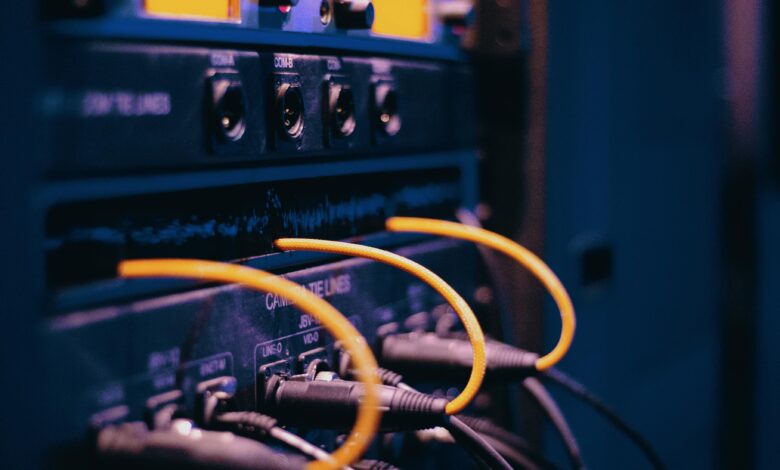How Blockchain Technology is Changing Industries

Blockchain technology, originally developed as the underlying infrastructure for Bitcoin, has evolved far beyond its cryptocurrency roots. Its decentralized, transparent, and secure nature makes it a transformative force across various industries. By enabling trustless transactions, reducing intermediaries, and ensuring data integrity, blockchain is revolutionizing how businesses operate. In this article, we’ll explore how blockchain is reshaping key sectors and driving innovation.
1. Finance and Banking
The financial sector was one of the first to embrace blockchain technology, and its impact continues to grow.
Key Applications
- Cross-Border Payments: Blockchain enables faster and cheaper international money transfers by eliminating intermediaries like banks and payment processors. Ripple (XRP) and Stellar are examples of platforms facilitating real-time cross-border transactions.
- Decentralized Finance (DeFi): DeFi platforms use blockchain to offer financial services such as lending, borrowing, and trading without traditional banks. Smart contracts automate these processes, reducing costs and increasing accessibility.
- Fraud Prevention: Blockchain’s immutable ledger ensures that transaction records cannot be altered, reducing fraud and enhancing transparency in financial operations.
Impact
- Lower transaction fees.
- Increased financial inclusion for unbanked populations.
- Enhanced security and trust in financial systems.
2. Supply Chain Management
Supply chains are often complex, involving multiple stakeholders and processes. Blockchain simplifies and secures these operations.
Key Applications
- Transparency and Traceability: Blockchain allows every participant in the supply chain to track products from origin to destination. For example, Walmart uses IBM’s Food Trust blockchain to trace food items, ensuring safety and reducing waste.
- Smart Contracts: Automating agreements between suppliers, manufacturers, and distributors reduces delays and disputes. Payments can be released automatically once predefined conditions are met.
- Counterfeit Prevention: Blockchain verifies the authenticity of goods, combating counterfeit products in industries like pharmaceuticals and luxury goods.
Impact
- Improved efficiency and accountability.
- Reduced fraud and counterfeiting.
- Enhanced consumer trust through verifiable product histories.
3. Healthcare
In healthcare, blockchain addresses critical challenges related to data management, patient privacy, and interoperability.
Key Applications
- Secure Medical Records: Blockchain stores patient data securely and allows authorized parties to access it seamlessly. This ensures privacy while enabling efficient sharing between healthcare providers.
- Drug Traceability: Blockchain tracks the production and distribution of pharmaceuticals, ensuring compliance with regulations and preventing counterfeit drugs from entering the market.
- Clinical Trials: Blockchain ensures the integrity of clinical trial data, preventing tampering and enhancing trust in research outcomes.
Impact
- Better patient care through accurate and accessible medical records.
- Reduced risk of counterfeit medications.
- Streamlined regulatory compliance.
4. Real Estate
Real estate transactions are traditionally slow, paper-heavy, and prone to fraud. Blockchain streamlines these processes and enhances transparency.
Key Applications
- Tokenization of Assets: Blockchain allows fractional ownership of properties by tokenizing real estate assets. Investors can buy and sell shares of properties easily, increasing liquidity in the market.
- Smart Contracts for Transactions: Smart contracts automate property sales, lease agreements, and rental payments, reducing the need for intermediaries like lawyers and brokers.
- Title Registry: Blockchain-based land registries ensure accurate and tamper-proof property records, reducing disputes over ownership.
Impact
- Faster and more cost-effective transactions.
- Increased accessibility to real estate investments.
- Reduced fraud and errors in property records.
5. Energy
The energy sector is leveraging blockchain to create decentralized and sustainable solutions.
Key Applications
- Peer-to-Peer Energy Trading: Blockchain enables individuals with solar panels or other renewable energy sources to sell excess energy directly to neighbors without relying on utility companies. Platforms like Power Ledger facilitate this process.
- Carbon Credit Tracking: Blockchain tracks carbon credits and emissions data, ensuring transparency and accountability in environmental initiatives.
- Grid Management: Decentralized energy grids powered by blockchain improve efficiency and resilience by distributing energy resources more effectively.
Impact
- Empowers consumers to participate in the energy market.
- Promotes sustainability and renewable energy adoption.
- Reduces reliance on centralized energy providers.
6. Voting Systems
Traditional voting systems face challenges such as voter fraud, low turnout, and lack of transparency. Blockchain offers a secure and accessible alternative.
Key Applications
- Immutable Vote Records: Blockchain ensures that votes cannot be altered or deleted, enhancing trust in election results.
- Remote Voting: Blockchain-based platforms enable secure online voting, making it easier for people to participate in elections.
- Transparency: Voters can verify that their votes were counted correctly without compromising anonymity.
Impact
- Increased voter participation.
- Reduced risks of fraud and manipulation.
- Greater public confidence in democratic processes.
7. Entertainment and Media
The entertainment industry faces issues like piracy, royalty disputes, and opaque revenue-sharing models. Blockchain provides innovative solutions.
Key Applications
- Royalty Distribution: Blockchain automates royalty payments to artists, musicians, and content creators using smart contracts. Platforms like Audius and Mycelia empower creators to receive fair compensation.
- Digital Rights Management: Blockchain verifies ownership of intellectual property, protecting creators’ rights and reducing piracy.
- NFTs (Non-Fungible Tokens): NFTs allow artists to tokenize their work, proving authenticity and enabling direct sales to collectors. This has opened new revenue streams for creators.
Impact
- Fairer compensation for creators.
- Enhanced protection against piracy.
- New business models through NFTs and tokenization.
8. Insurance
Insurance processes are often inefficient and prone to fraud. Blockchain introduces automation and transparency to address these issues.
Key Applications
- Claims Processing: Smart contracts automate claims verification and payouts, reducing delays and administrative costs.
- Fraud Detection: Blockchain’s immutable ledger prevents duplicate claims and ensures accurate record-keeping.
- Microinsurance: Blockchain enables affordable microinsurance policies tailored to specific needs, benefiting underserved populations.
Impact
- Faster claims processing and payouts.
- Reduced fraud and operational costs.
- Expanded access to insurance services.
9. Education
Blockchain is transforming education by improving credential verification and lifelong learning opportunities.
Key Applications
- Digital Diplomas and Certificates: Blockchain stores academic credentials securely, allowing employers and institutions to verify qualifications instantly.
- Lifelong Learning Records: Learners can maintain a blockchain-based portfolio of skills and certifications earned throughout their careers.
- Preventing Diploma Fraud: Blockchain eliminates fake degrees by providing tamper-proof records.
Impact
- Simplified credential verification.
- Encourages continuous skill development.
- Combats diploma mills and fraud.
10. Government Services
Governments worldwide are exploring blockchain to enhance public service delivery and governance.
Key Applications
- Identity Management: Blockchain creates secure digital identities, reducing identity theft and simplifying interactions with government agencies.
- Tax Collection: Blockchain automates tax collection and ensures transparency in government spending.
- Public Records: Blockchain stores land titles, birth certificates, and other public records securely and immutably.
Impact
- Improved citizen services and trust.
- Reduced bureaucracy and inefficiencies.
- Enhanced transparency in governance.



